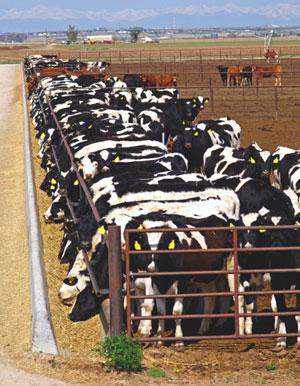Watchdogging Organic Standards

In the midst of watchdogging and commenting on the flurry of Federal Register filings out of USDA and FDA, we were stunned when the National Organic Program (NOP) of USDA unexpectedly published a long-awaited Proposed Rule for Access to Pasture (Livestock) on October 24. When I say “long-awaited”-believe me.
Longtime readers may recall that I served on the National Organic Standards Board (NOSB) as a consumer representative from January 2001–2006. Access-to-pasture standards were a front-burner controversy all those years, and our board unanimously approved and submitted recommendations in 2005 to the secretary of agriculture. We urged that they be implemented as formal regulations as soon as reasonably possible since “guidelines” are not enforceable, like regulations, by NOP.
NOP published an advance notice of proposed rulemaking on pasture standards in the Federal Register in April 2006. Nothing happened for 18 months, then NOP published it Oct. 24, 2008 in the frenzied days before the national election, at the start of the holiday season-and gave only 60 days for public comment, by Dec. 23. [ Editor’s note: A 30- to 60-day extension request was denied.]
Relief that the pasture rule was published at all quickly turned to shock and dismay. Many sections and regulations were added-devilish details that do not reflect the spirit or letter of the standards. Some might be impossible for many organic beef producers to meet. The NOP has scheduled “listening” sessions, which is hopeful and useful. But that misses the point.
These proposed pasture standards were neither developed by nor voted upon by the National Organic Standards Board (NOSB). NOP administrators circumvented the board, a very serious omission (or commission). NOP overstepped its authority.
Congress in 1990 specifically gave the NOSB a broader role than usually is allowed advisory boards under the Federal Advisory Boards Act. That’s been a thorn in the side of numerous USDA career staff, but it clearly makes the NOSB role critical-as a hedge against pressure from consolidated agribusinesses that want more influence over the organic label than is healthy.
Finally, you may have read already about what, for me, is the most sad and shocking of all. The current 14-member NOSB voted in November, 10 to 4, in favor of developing farmed salmon as USDA certified organic. This board would approve open-net ocean pens, which already are flushing pollution, parasites and waste directly into public waters.
Furthermore, if ultimately approved, certified “organic” fish would be fed 25 percent non-organic fishmeal made from wild fish and/or possibly contaminated with mercury and PCBs. Net pens have an established history as the ocean equivalent of confined animal feedlot operations (CAFOs). Factory farms are as opposite to organic as imaginable.
As our co-op said in official remarks to the USDA, not all food production methods can meet organic standards. Wild fish, for instance, are not certifiable as organic.
The NOSB (at least 10 of its members) appears to have lost touch with its mission to create strong standards, to defend and elevate them on behalf of organic consumers and producers who depend on trust and respect in the USDA Organic label.
The good news: it’s not a done deal. The minute the NOP publishes the Notice of Rulemaking, we’ll be on it.
Excerpted from the January 2009 issue of Sound Consumer, newsletter of PCC Natural Markets: www.pccnaturalmarkets.com/sc/0902/goldie.html







